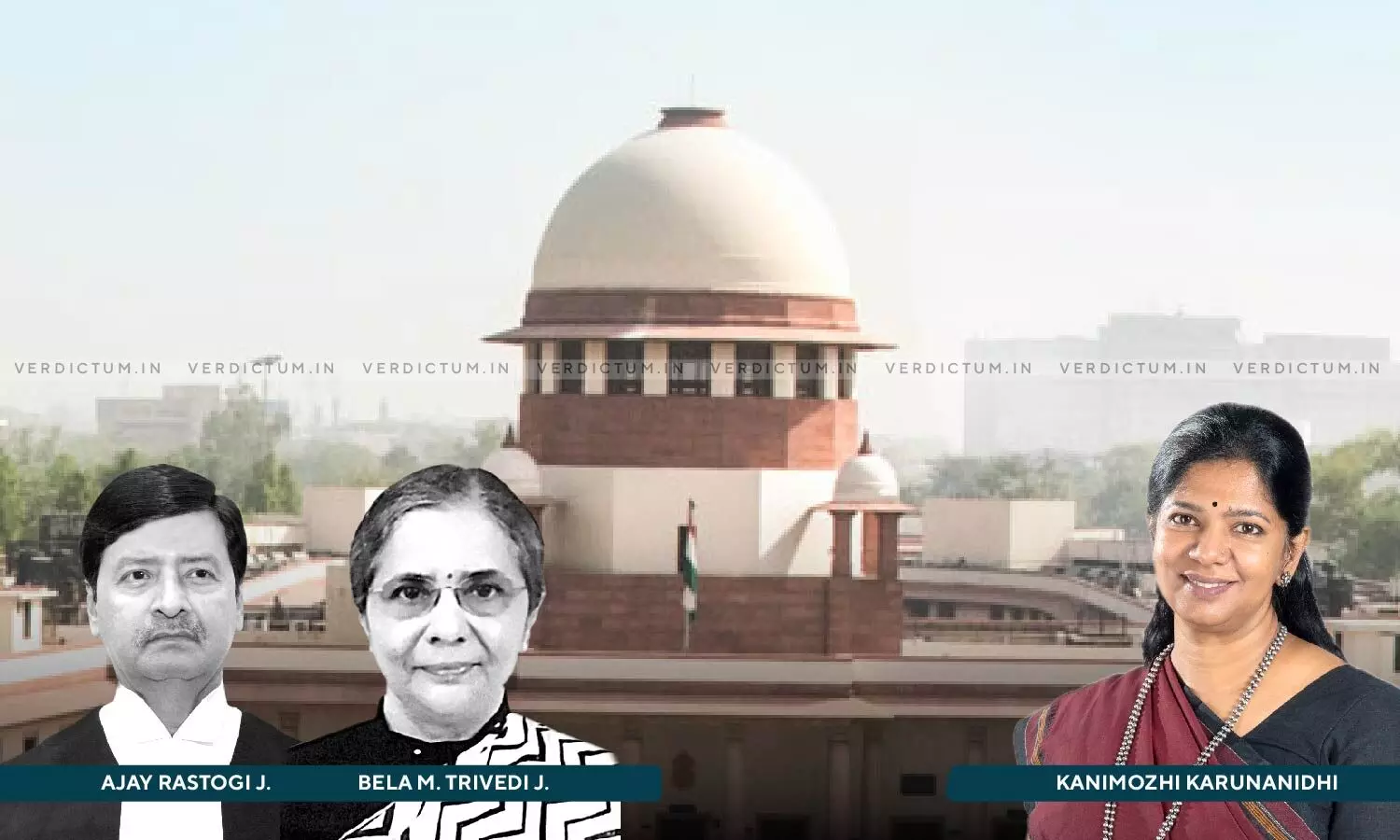
Vital And Basic Facts Omitted: SC While Dismissing Election Petition Against DMK MP Kanimozhi Karunanidhi
 |
|The Supreme Court has recently dismissed the election petition filed against the DMK MP Kanimozhi Karunanidhi and upheld her election from Thoothukudi in the 2019 Lok Sabha polls on the ground of omission of vital and basic facts in the same.
The Court was dealing with an appeal filed by the DMK MP challenging an order passed by the Madras High Court whereby it declined to quash the said election petition.
The two-Judge Bench comprising Justice Ajay Rastogi and Justice Bela M. Trivedi held, “So far as the present petition is concerned, there is no averment made as to how there was non-compliance with provisions of the Constitution or of RP Act or of the Rules or Order made thereunder and as to how such non-compliance had materially affected the result of the election, so as to attract the ground under Section 100(1)(d)(iv) of the RP Act, for declaring the election to be void. The omission to state such vital and basic facts has rendered the petition liable to be dismissed under Order VII, Rule 11(a) CPC read with Section 83(i)(a) of the RP Act, 1951.”
The Bench said that mere bald and vague allegations without any basis would not be sufficient compliance with the requirement of stating material facts in the Election Petition.
Senior Advocate P. Wilson appeared on behalf of the appellant while Advocate Mukesh S. appeared on behalf of the respondent.
Brief Facts -
In the year 2019, the nominations were invited pursuant to the notification issued by the Chief Election Commissioner for the elections to the 17th Lok Sabha and the appellant filed her nomination from No. 36-Thoothukudy Lok Sabha Constituency, along with the affidavit in Form No. 26 as per Rule 4A of the Conduct of Election Rules 1961. The scrutiny of nomination papers was held by the Returning Officer and the elections were held as scheduled, and the appellant was declared elected from the said constituency with a margin of 3,47,209 votes.
The Election petitioner i.e., the respondent claiming to be a voter, filed the Election Petition before the High Court under Section 80, 80A, 100(1)(d)(iv) of the Representation of the People’s Act, 1951 (RP Act) seeking a declaration that the election of the returned candidate conducted pursuant to the notification of the Chief Election Commissioner was void and liable to be set aside, on the ground that the information sought by the Election Commission of India in regard to the payment of income tax of her spouse was not provided by her in the affidavit submitted along with the nomination papers, and thus had intentionally suppressed and not disclosed the same to the electors.
The Supreme Court after hearing the contentions of both the counsel observed, “… the respondent has made very bald and vague allegations without stating the material facts as to how there was non-compliance of any of the provisions of the Constitution of India or of the RP Act or of the rules made thereunder. … it was obligatory on the part of the Election petitioner to state in the Election petition as to what was the Permanent Account Number of the spouse of the returned candidate in India which was suppressed by her and how the other details furnished about her husband in the said Form No. 26 were incomplete or false.”
The Court further noted that the material facts which are primary and basic facts have to be pleaded by the Election petitioner in support of the case set up by him to show his cause of action and omission of a single material fact would lead to an incomplete cause of action, entitling the returned candidate to pray for dismissal of Election petition under Order VII Rule 11(a) CPC read with Section 83(1)(a) of the RP Act.
“The Returning Officer is empowered either on the objections made to any nomination or on his own motion, to reject any nomination on the grounds mentioned in Section 36(2), including on the ground that there has been a failure to comply with any of the provisions of Section 33 of the Act”, said the Court.
Accordingly, the Apex Court dismissed the election petition, allowed the appeal, and set aside the judgment of the High Court.
Cause Title- Kanimozhi Karunanidhi v. A. Santhana Kumar & Ors.